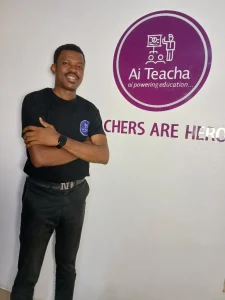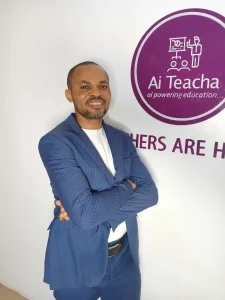Afripreneur
Interview With Doja Culinary Company CEO, Onaopemipo Dara

Onaopemipo ‘Pepo’ Dara is the CEO at Doja Culinary, a catering, training and food delivery company and Lux Gifts and Crafts, a personalized gifting service. She has an MBA from Lagos Business School (LBS) and recently concluded the African Women Entrepreneurship Cooperative with the Center for Global Enterprise. In this interview with Alaba Ayinuola of Business Africa Online, Pepo talks about her brand Doja Culinary, how it’s filling the skills gaps through trainings and creating employment and her plans to have up to 3 physical locations in Nigeria. Excerpt.
Alaba: Kindly tell us about Doja Culinary and the role you play?
Onaopemipo: Doja Culinary Company is a Catering, Food delivery and Training company that specializes in Finger foods, African and Continental dishes, Barbecue and Cocktails.
We love creating dishes with hand-selected ingredients, beautiful interpretations of indigenous and continental dishes and beverages, custom made to your taste, event, guests, company and preferences.
We are also into social venture #OneByOne that partners with existing NGOs to raise awareness, donations and volunteers for causes and projects especially in Youth Empowerment, Girl Child Education and Poverty Alleviation.
Alaba: What was your startup capital and how were you able to raise it?
Onaopemipo: I had no startup capital. My savings were tied in another business and the timing was right to start the business. I started in my home kitchen, so that helped save on utilities and equipment. My first order was worth N10,000, after delivery I saved whatever was left over after each order. When I saved enough, I would buy the things we needed according to priority. I had to be very frugal and didn’t pay myself a salary for the first year and a half.
Alaba: What are the challenges and how are you overcoming them?
Onaopemipo: Challenges come in different shapes and forms and you have to roll with the punches. I can categorize the challenges into 2 major categories: Staffing and Logistics.
Staffing: The food industry globally has relatively high employee turnover rates as high as 60% and culinary jobs are typically deemed as transitional jobs that you do for a short while as a means to an end – the end being another job. The case in Nigeria in particular is dire as there are not many culinary professionals for hire. You have to hire blue collar workers and train them yourselves. Professional Chefs’ remuneration is way above the budget of an SME.
We try our best to have pools of temp staffing options and often use ad-hoc staff. There are informal temp staffing agencies with staff that are experienced in the food service industry. We also depend on referrals of former and current staff with satisfactory records to recommend potential staff. We then train the staff to our quality levels. Even if they do not work with us for long or full time, it is one more person with basic food, health and safety training in circulation.
Logistics: This we can blame on the lack of infrastructure in Nigeria, so seemingly basic tasks like transportation, courier/delivery services, telephone and internet communication as well as any tasks involving basic amenities like electricity or water can put a lot of strain, require a lot of planning and contingency budgets.
We deal with this by planning, planning, planning. You have to have plans A to Z and foresee several scenarios and ways in which your plans might fall through. For example if you are going to be cooking at a venue for a client, even if the venue claims to have water, we often would take our water along just in case. For logistics we have multiple dispatch companies in our contacts, as well as local cab and bike drivers, our staff might also need to step in and make deliveries in person sometimes. You just have to anticipate and be ready to make last minute decisions to solve issues as they come.
Alaba: What advice would you give prospecting entrepreneurs who intend to start a business or invest in Africa?
Onaopemipo: Two things come to mind…
- You have to know your market and industry intimately. The Nigerian market is very peculiar and is often not as straightforward as global markets or business textbooks. So don’t be surprised if a middle income target market exhibit buying preferences like high income earners and vice versa in your particular sector.
- Never make the same mistake twice. Failures and set backs are opportunities to grow, and they will occur in their numbers. Reputation is important, make sure that even in event of setbacks, you are known for coming up with resolutions as best as you can, going above and beyond for clients.
Also Read Co-founders Should Avoid This Legal Mistake
Alaba: What’s the future for your business and what steps are you taking in achieving them?
Onaopemipo: One of our 5 year goals is that we hope to have up to 3 physical locations in Nigeria. We are doing a lot of planning and research to find the best way to create value in this space. We are also training and in discuss with industry mentors to see where our skill gaps lie and the best way to fill them.
Alaba: How is your business contributing to the development of Africa?
Onaopemipo: We are contributing by filling skills gaps through trainings and creating employment. We hope to contribute more by creating competitive concepts that add to the existing food value chain. We also contribute through our social venture #OneByOne: we have partnered with 3 NGOs since 2016, 7 projects with over 2,700 beneficiaries since inception.
Alaba: What’s your view on the development of Africa’s business ecosystem?
Onaopemipo: The African Business Ecosystem is so dynamic and has so much potential. It has grown a lot in recent times but we have barely scratched the surface. We have grown from focus on creating businesses out of necessity for survival to creating businesses to solve problems and create value.
I think as we lean into fostering co-creation and collaborations, breaking gender, ethnic, and geographical boundaries, we will tap into a new level of growth for the ecosystem.
Alaba: What inspires you and keeps you going?
Onaopemipo: Inspiration comes from various sources and from the little things – family, experiences, memories, people you meet, other businesses, books, television etc.
My faith as a Christian is also a big source of inspiration and a way to meditate and recharge.
When I find myself low on inspiration or motivation, I turn taking a break to recharge, spending time with friends and family, spending time with fellow entrepreneurs or entrepreneurs who have achieved what you plan to in the short or long term, my social media – I follow a lot of business publications and influencers, inspirational people and accounts based on my hobbies, interest and aspirations.
Alaba: How do you relax and what books do you read?
Onaopemipo: I love hanging out with family or catching up with friends over foods and drinks at home. Once in a while I find something new and adventurous to do, a break from my normal routine from traveling or hiking to attending social events. I also love a good book or movie. Sleep! I love a good nap. Business can be physically and mentally draining and sometimes you trade off on nights of sleep to meet up with deadlines, so when its time to recharge, nothing better than sleeping and waking up refreshed.
I try to read wide and I am often curious about an array of topics. I read fiction and non-fiction. I particularly like Christian fiction, I recently read Ted Dekker’s Adam and Francine River’s Masterpiece.
My favourite non-fiction of 2019 is Steven Levitt’s Freaknomics. It was an amazing read I plan to read again. I also recommend Gbolahan Fagbure’s Working on a Dream and Ibukun Awosika’s Girl Entrepreneurs for the African Entrepreneur.
Her Short Bio:
Onaopemipo ‘Pepo’ Dara has worked in different sectors including fashion, management consulting, culinary, public service and NGOs. Pepo currently runs Doja Culinary (@dojaculinary), a catering, training and food delivery company and Lux Gifts and Crafts (@luxgiftsncrafts), a personalized gifting service. She has an MBA from Lagos Business School (LBS) and recently concluded the African Women Entrepreneurship Cooperative with the Center for Global Enterprise. When she takes time off, you can find her deep inside a book, spending time with loved ones or ‘pretending’ to be an adventurer.
Afripreneur
Oluchi Anoruo on building SmartPharm and addressing access to healthcare products

Pharmacist Oluchi Anoruo is a visionary healthcare leader and a passionate advocate for global health and well-being. As the Co-founder and CEO of SmartPharm, Oluchi has leveraged her extensive experience to drive innovative solutions in the pharmaceutical industry. Her over six years of practice as a pharmacist have equipped her with a deep understanding of clinical practice, pharmaceutical management, and patient care. Under her leadership, SmartPharm is at the forefront of transforming access to healthcare products, ensuring better health outcomes for patients. In this interview with Alaba Ayinuola of Business Africa Online (BAO), Oluchi shares her entrepreneurship journey, advocacy for global health and well being and how she is addressing access to healthcare products in Nigeria with SmartPharm. Excerpts.
Alaba: Could you briefly share your entrepreneurial journey, and what inspired you to start a pharmacy aggregator startup?
Oluchi: My journey as a founder started in 2017 when I lost my aunt due to the lack of access to an emergency drug needed to reduce the swelling in her brain caused by head trauma she sustained in a car accident. Her death was preventable. This painful experience exposed me to the bottlenecks patients faced in accessing vital medications and made me more intentional as a pharmacist to help patients gain easy access to vital medications. Leveraging on the influence I had within my professional circle, in 2018, I created an e-directory of some Pharmacies in Owerri, Imo State on Google sheet which I regularly updated. This e-directory was extremely useful in quickly finding the Pharmacy in the community to visit for a particular medication.
Having no entrepreneurial or tech skills, I embarked on numerous self-development journeys that enabled me to gain the required skills. I enrolled in online courses on EDx for entrepreneurship. During this time (2019), I got selected by Circuit Pointe a women focused non-profit organization for a 5 months web development course. On completion, I equally got awarded the fully funded Andela/Google/Pluralsight scholarship on android development. It was during this program I got coaching that helped me to pursue product design as it was more relatable , human centred and gave me room to hone my problem solving skills. I enrolled in Pixels online design school, graduated top of my class and got a scholarship sponsored by UK tech hub to further develop my product design skills. During this time, I registered SmartPharm as a business name.
I went on to work remotely as a contract product designer for various healthtech companies while building SmartPharm and also working as a community pharmacist. As a testament to my academic, professional and social achievements, I enrolled at the Nigerian University of Technology and Management (NUTM) in September 2021 as one of the selected sixty scholars for a fully funded one-year postgraduate program on tackling African perennial challenges. During my time in NUTM I was able to develop the first MVP of SmartPharm with the help of some colleagues who I parted ways with after the program. I also met one of my co-founders at NUTM. My co-founders and I have gone on ahead to achieve great milestones and we are positioning to achieve more towards our goal of changing the way Nigerians access their healthcare products.
Alaba: What specific problems does your platform solve?
Oluchi: We are addressing the poor and untimely access to healthcare products (medication, medical devices and pharmaceutical cosmetics) for persons who are in need of them.
Alaba: How does your platform aggregate pharmacy services, and what benefits do users gain?
Oluchi: We typically work with and onboard registered community pharmacies. Our users get to enjoy discounted prices offered in partnership with our partner pharmacies.
Alaba: Can you walk us through your platform’s key features and user experience?
Oluchi: Using smartpharm.net is pretty easy. Our platform is a webapp for now and you can find and order your health products in 3 easy steps – search, order and receive(door delivery or you can pick it up yourself.)
We pride ourselves in providing timely access to your medication and also delivery. On the average, we typically find and deliver within an hour (within Lagos). We are in Lagos for now.
Alaba: How do you ensure competitive pricing and discounts for users?
Oluchi: We are very customer centric and we are always on the lookout for our customers. Because we have a lot of pharmacies in our network, our customers get to choose the best price to buy their health products.
Alaba: What strategies do you employ to retain users and encourage repeat business?
Oluchi: It’s simple- we put the customers/users first.
Alaba: How has your entrepreneurial journey impacted your personal life and values?
Oluchi: Being an entrepreneur has given me the opportunity to make impact by contributing to reducing avoidable deaths due to poor and untimely access to health products and also instil values that made me over the years such as integrity, fair hearing, respect, empathy and discipline into my business through the way we treat people who work for us and they people we serve.
Alaba: Lastly, What role do you see pharmacy aggregators playing in improving healthcare outcomes?
Oluchi: I strongly believe that the adoption of tech enabled solutions into the healthtech (pharmacy tech space), will completely revolutionize the pharmacy space in the nearest future culminating in enhancing the way people access their health products subsequently helping to improve people’s health outcome. If Mr A can have constant access to affordable health products without the need to worry about his next refills or where to get his next refills, then he will be able to stay faithful to taking his medications with all things being equal.
B I O G R A P H Y
Pharmacist Oluchi Anoruo is a visionary healthcare leader and a passionate advocate for global health and well-being. With a robust educational background that includes a Bachelor of Pharmacy from the University of Uyo and postgraduate studies at the Nigerian University of Technology and Management, Oluchi combines academic excellence with practical expertise. Her dedication to lifelong learning is evident in her numerous certifications, including notably Jim Leech Fellowship and Ashoka in Social Innovation in Health and Wellness.
As the Co-founder and CEO of SmartPharm, Oluchi has leveraged her extensive experience to drive innovative solutions in the pharmaceutical industry. Her over six years of practice as a pharmacist have equipped her with a deep understanding of clinical practice, pharmaceutical management, and patient care. Under her leadership, SmartPharm is at the forefront of transforming access to healthcare products, ensuring better health outcomes for patients.
Afripreneur
Redefining Real Estate Marketing: An Interview with Imelda Usoro Olaoye, Founder of Thinkmint

Imelda Usoro Olaoye is a seasoned sales and marketing leader who has worked in various sectors of the economy. Imelda is an expert in real estate, marketing consultancy, using new tools, technology and methods having successfully launched and run an award winning real estate digital marketing firm with branches in Lagos, Nigeria and Estonia, Europe; Thinkmint Nigeria and Europe. She started her real estate/home sector marketing career in Clarions UK after which she joined PropertyPro.ng where she rose to lead the company’s media, real estate transactions and exhibitions team. In this exclusive interview with Alaba Ayinuola of Business Africa Online (BAO), Imelda shares her entrepreneurship journey with a passion for creating solutions that meet people’s needs and the real estate market in Nigeria. Excerpts.
Alaba: Could you briefly share your entrepreneurship journey, and what inspired you to start a real estate deals marketing company?
Imelda: My entrepreneurship journey began with a passion for creating solutions that connect people with the resources they need. While working in media, exhibitions, and events, especially as the Head of Transactions, Media/Exhibitions and organising the African Real Estate Discussions & Awards (AFRECA) at Tolet.com.ng ; now PropertyPro.ng, I recognized a significant gap in the real estate market: the need for a platform that simplifies transactions and bridges the gap between buyers, sellers, and industry professionals. This inspired me to found Thinkmint, a real estate marketing company. It was born out of the desire to provide a seamless experience for clients and to use technology as a tool for creating accessibility and efficiency in real estate marketing.
Alaba: Can you share your experience in real estate marketing and notable achievements?
Imelda: Over the years, I’ve built a robust experience in real estate marketing by managing high-value transactions and leading teams to deliver measurable results. Notably, I spearheaded the launch of Real|Life Magazine, an innovative publication showcasing real estate opportunities, developed an online marketplace, www.thinkmint.ng/buyrealestate, which simplifies the discovery and purchase of offplan properties with No Agency Fees, Flexible Payment Plans and Low Entry Fees. Additionally, through events like the Real Estate Discussions and Awards (REDA), I’ve fostered industry networking and thought leadership, which have contributed to the visibility and credibility of Thinkmint in the real estate sector. We recently also launched a branch in Estonia, Europe to allow for ease of transactions for Nigerians in Diaspora.
Alaba: What services do you offer, and how do you differentiate your company from other platforms?
Imelda: Our services include real estate marketing, lead generation, content creation, and event management tailored specifically to the property sector. What sets us apart is our focus on integrating cutting-edge digital tools with traditional marketing techniques. We offer personalized solutions for clients, leveraging data analytics to optimize campaigns and drive results. Additionally, our platforms, including Real|Life Magazine and www.thinkmint.ng/buyrealestate, provide a unique blend of informative content and actionable opportunities, creating a comprehensive resource for the real estate market, with a focus on offplan properties.
Alaba: What marketing strategies do you find most effective for real estate deals, and how do you leverage technology in your marketing efforts?
Imelda: Digital marketing has proven to be the most effective strategy. We rely heavily on SEO, targeted social media campaigns, and email marketing to generate leads and close deals. Technology plays a crucial role in our operations—we use analytics tools to track campaign performance, understand customer behaviour, and refine our strategies. We also utilize CRM systems to manage client relationships effectively and online marketplaces to streamline property listings and inquiries.
Alaba: What trends do you see shaping the real estate industry in Nigeria?
Imelda: The industry is rapidly embracing technology, with the rise of online property listings and virtual tours gaining traction. There is also a growing interest in eco-friendly developments and smart homes, reflecting global trends. Additionally, flexible payment plans and increased involvement in public-private partnerships are helping to address housing deficits. As the market evolves, I see technology continuing to drive transparency and efficiency in real estate transactions.
Alaba: What inspired you to create a business women’s hub, and how do you aim to empower women in business?
Imelda: The platform Business Women Hub is a non-profit organization inspired by my belief in the power of collaboration and mentorship. Women often face unique challenges in business, including limited access to resources and networks. The hub serves as a platform to connect women entrepreneurs, provide educational resources, and create opportunities for collaboration and growth. Through workshops, networking events, and mentorship programs, we aim to equip women with the tools and support they need to thrive in their ventures. Business Women Hub specifically caters for women within their first five years in business and has grown to have over 1500 registered businesses located in Nigeria , South Africa , Kenya , United Kingdom, Canada , New Zealand, Australia & USA.
Alaba: What challenges do you see women facing in business, and how do you address them?
Imelda: Women often face challenges such as access to funding, balancing work-life responsibilities, and overcoming societal biases. To address these issues, I advocate for policies and programs that provide financial support and promote gender equity. Through the Business Women’s Hub, we create a supportive community where women can share experiences, learn from one another, and gain confidence to navigate these challenges.
Alaba: Lastly, what advice would you give to aspiring entrepreneurs and businesswomen?
Imelda: My advice is to stay resilient, consistent, embrace continuous learning, and never underestimate the value of networking. Build a strong support system and seek mentorship from those who have walked the path before you. Also, be open to innovation and leverage technology to create solutions that stand out. Most importantly, believe in yourself, and your vision—success often starts with a mindset of possibility.
B I O G R A P H Y
Imelda Usoro Olaoye is a seasoned sales and marketing leader who has worked in various sectors of the economy. Imelda is an expert in real estate, marketing consultancy, using new tools , technology & methods having successfully launched and run an award winning real estate digital marketing firm with branches in Lagos, Nigeria and Estonia, Europe ; Thinkmint Nigeria and Europe.
She started her real estate/home sector marketing career in Clarions UK after which she joined PropertyPro.ng where she rose to lead the company’s media, real estate transactions and exhibitions team. Prior to this she had worked in the banking and pharmaceutical industry.
A graduate of the University of Port- Harcourt, she has honed her skills in digital marketing, PR & advertising and business practice from the Edinburgh Business School.
Imelda is a member of the International Real Estate Federation, FIABCI. She is also the Founder of Business Women Hub, a nonprofit organization dedicated to the growth of female-owned businesses , especially within their first five years of existence, and 1303 DSylva Events.
Apart from being an entrepreneur, she is a very passionate business growth manager, an award winning real estate consultant and philanthropist.
Afripreneur
Exclusive: Meet the founders building AI tools for education in Africa

Akpan Emmanuel and Uche Nwaobi are the Co-founders of International Community for Educational Technology – ICEDT makers of Ai Teacha, a teaching app that has an engaging and interactive experience for both educators and learners. As pioneers in the educational technology sphere, Akpan and Uche understand the evolving needs of teachers. They are on a mission to empower educators with tools that transcend traditional boundaries. In this exclusive interview with Alaba Ayinuola of Business Africa Online (BAO), Akpan and Uche share their journey and why they are committed to reshaping the landscape of teaching and learning through cutting-edge artificial intelligence. Excerpts.
Alaba: What inspired you to start an EdTech company focused on Africa?
Emmanuel: My inspiration came from witnessing the challenges educators and students face across Africa, particularly in underserved communities. Through initiatives like CS First Lagos Edu Consultant and Code Nigeria Project, I saw how technology could transform education by bridging gaps in access and quality. AI Teacha was born out of a desire to amplify this impact by empowering educators with AI-driven tools that reduce their workload, enhance student engagement, and improve learning outcomes. The platform represents my vision of using technology to make education accessible and equitable for all.
Alaba: Could you briefly share your personal experience with education in Africa and how it shaped your vision?
Uche: Having spent over 25 years in the classroom, I’ve experienced the daily challenges teachers face: overwhelming workloads, limited resources, and difficulty integrating technology into teaching. As a Microsoft Innovative Educator Master Trainer and TeachSDGs Ambassador, I’ve witnessed how transformative technology can be when used effectively. AI Teacha is my way of scaling those solutions. By combining local insights with global best practices, the platform addresses critical gaps, making it easier for educators to provide engaging and impactful lessons.
Alaba: What specific problems does your platform solve for African learners?
Emmanuel & Uche: AI Teacha solves several pressing issues;
Overburdened Educators: Teachers often spend countless hours on administrative tasks. AI Teacha automates processes like lesson planning and assessment creation, giving them more time to focus on teaching.
Resource Constraints: Many schools lack quality teaching materials. Our platform provides AI-driven tools that help create lesson aids, activities, and personalized learning resources. Educational Equity: Students in underserved regions often have limited access to engaging and inclusive learning experiences. AI Teacha bridges this gap by offering affordable, accessible tools that cater to diverse learning styles.
Alaba: Can you walk us through your platform’s key features and benefits?
Emmanuel & Uche: AI Teacha offers a comprehensive suite of AI-powered tools designed to simplify teaching and improve student engagement:
Lesson Plan Generator: Automates lesson planning, saving educators significant time.
Assessment Generator: Provides customizable assessments tailored to student needs.
Visual Aid Generator: Enhances classroom learning with interactive visuals. Text-to-Audio Conversion: Supports auditory learners by converting text into audio resources.
Activity Generator: Creates engaging activities to boost classroom participation. These features reduce workload by up to 80%, making teaching more efficient and impactful while ensuring every student receives a high-quality education.
Alaba: How do you envision the future of learning in Africa, and what role does your company play?
Emmanuel: I envision an Africa where technology eliminates barriers to education, enabling every child to access high-quality learning opportunities. AI Teacha will play a critical role in this future by equipping educators with tools to create personalized, engaging, and effective learning experiences. Our platform empowers teachers to reimagine their classrooms and inspires students to love learning.
Alaba: How do you measure the impact of your platform on learning outcomes?
Uche: We measure our impact through metrics like time saved by educators, improved student performance, and engagement rates on the platform. Additionally, we gather feedback from educators and collaborate with schools and education ministries to track progress. These insights help us refine our tools and ensure that AI Teacha continues to meet the needs of teachers and students.
Alaba: What have been the biggest challenges you’ve faced as an EdTech entrepreneur in Africa?
Emmanuel & Uche: Infrastructure Challenges: Limited internet connectivity in rural areas makes it difficult to scale technology solutions widely. Adoption Barriers: Introducing educators to new technologies requires significant training and awareness efforts.
Funding: Scaling AI Teacha in underserved regions while keeping it affordable has been challenging, but partnerships with schools, governments, and NGOs are helping us overcome these obstacles. Despite these challenges, our shared passion for transforming education keeps us focused and persistent.
Alaba: Lastly, what advice would you give to aspiring EdTech entrepreneurs? Both Founders: Emmanuel: Focus on solving real problems for educators and students. Build simple, scalable solutions, and don’t give up – transforming education is a long journey that requires patience and dedication.
Uche: Collaborate with teachers to understand their needs deeply. Invest in partnerships and prioritize affordability and impact in your solutions. Above all, believe in the power of education and technology to change lives.

Akpan Emmanuel is the Co-founder and Executive Director of International Community for Educational Technology -ICEDT makers of Ai Teacha. He is an Education Technology Consultant, a Microsoft Innovative Educator Master Trainer and a Microsoft Innovative Educator Expert.He is a Global Teacher and a facilitator for Global Project – a UN Project on SDGs. He supervises classrooms from US, Canada, UK, India and Greece teaching SDGs.

-

 Afripreneur15 hours ago
Afripreneur15 hours agoRedefining Real Estate Marketing: An Interview with Imelda Usoro Olaoye, Founder of Thinkmint
-

 Afripreneur14 hours ago
Afripreneur14 hours agoOluchi Anoruo on building SmartPharm and addressing access to healthcare products
-

 Economy19 hours ago
Economy19 hours agoMeta Hosts its First Youth Summit in Nigeria to Drive Innovation and Empowerment
-

 Technology19 hours ago
Technology19 hours agoLG’s Brand Reinvention: A Global Success Story

















